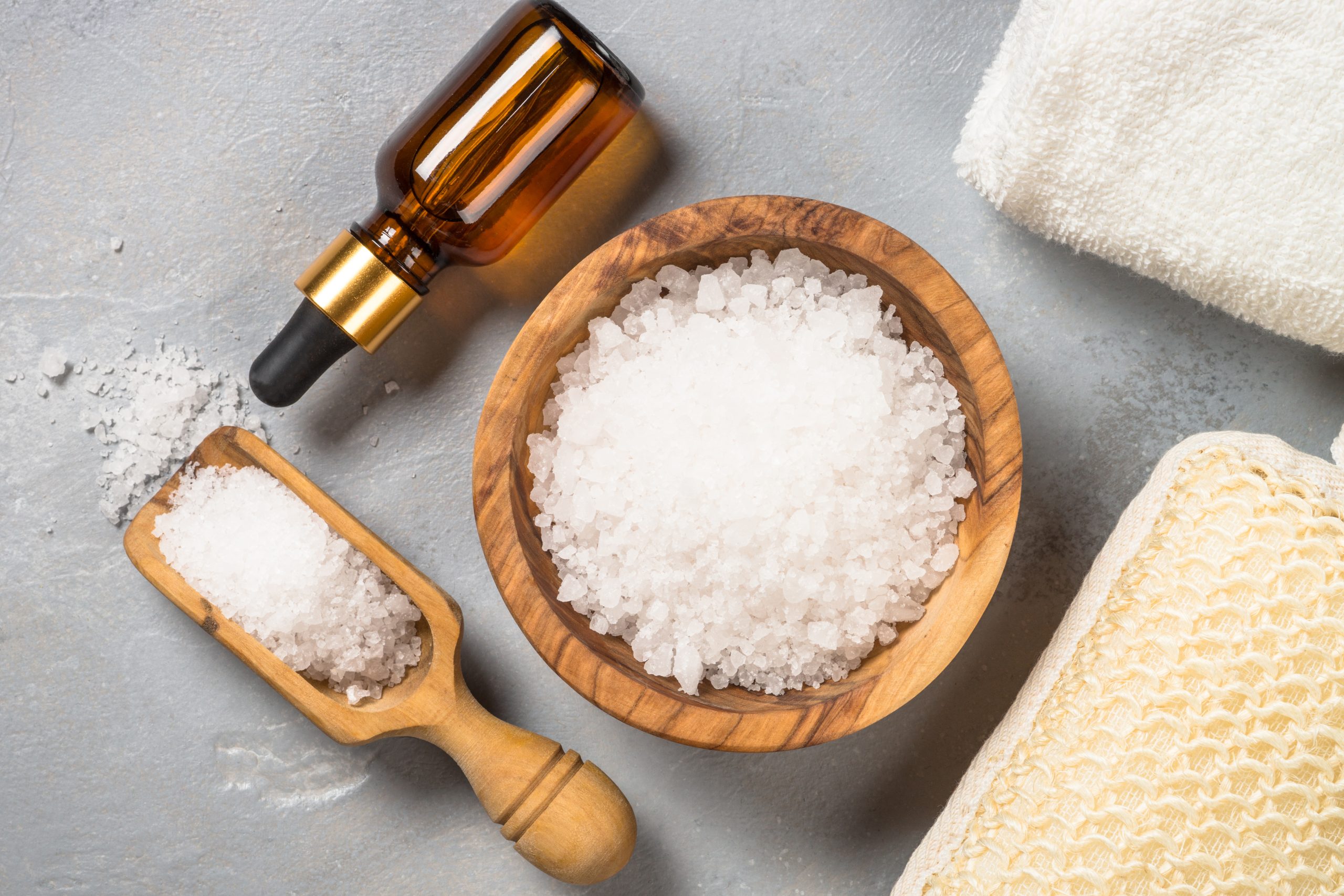The Stress-Free Postpartum Care Essentials Checklist For New Moms
Preparing for a new baby is a big task; whether you’re a first-time mom or a seasoned veteran, the months leading up to the delivery and bringing the baby home are often a flurry of activity. Many soon-to-be parents focus solely on preparing for their new addition, forgetting how important it is for new mothers to have adequate supplies to help them recover.
To make things a little easier, we’ve pulled together a list to help you prepare for the post-labor recovery period and hopefully make you and your baby more comfortable, giving you the confidence that you’re fully prepared.
8 Postpartum Essentials
Expectant parents typically prepare a well-stocked hospital bag, but what about after the baby is born? It’s nearly impossible to plan for every scenario, but there are several essential items you can prepare in advance to help alleviate discomfort, help with healing, and support your postpartum recovery.
First, you should check what you already have at home. Then, use this postpartum shopping list to gather and organize your postpartum essentials ahead of time so that once you’re home from the hospital, you’ll have a few fewer things to worry about.
1. Postpartum Pads
After giving birth, vaginally or through cesarean section, you may experience postpartum bleeding for up to six weeks or longer. Postpartum bleeding is often a mix of blood and a discharge known as lochia, a mixture of mucous, tissue, and blood from the lining of your uterus. Lochia is generally much heavier than menstrual blood, so specialty postpartum pads are longer, thicker and able to absorb more.
2. Ice Packs
It is very common to feel soreness and pain after giving birth, especially in the vagina and perineum, the area between your vagina and anus. This can be due to tearing or an episiotomy, where your doctor elects to make a small cut to your perineum to help deliver the baby. If you don’t have any tearing, the area will still be sore and swollen. Keep a stockpile of ice packs for instant relief and to help reduce swelling. You can also freeze some of your postpartum pads to relieve soreness or pain, more commonly known as a “padsicle.”
3. Witch Hazel
Using witch hazel after birth is a tried and true remedy for postpartum pain and discomfort. The medicinal plant is a natural antiseptic and rich in antioxidants and tannins, a biomolecule with skin-soothing properties. Many new moms use witch hazel in a few different ways:
- Vulvar and perineum soreness and itchiness: Add drops of witch hazel to a pad before freezing it to make “witch hazel padsicles.” The combination of cold and witch hazel soothes the inflamed and itchy skin, providing some much-needed relief. DO NOT insert anything into your vagina.
- Hemorrhoids: Various brands sell premade witch hazel pads for hemorrhoid relief, or you can make your own by soaking cotton pads in witch hazel and storing them in a zipped plastic bag. Use sparingly, as witch hazel can dry the skin around your anus.
- Add it to a sitz bath: A sitz bath is when you soak in a shallow pool of warm water to help ease pain in your bottom or private parts. Adding a bit of witch hazel to your water can enhance your experience.
4. Epsom Salt
In addition to adding witch hazel to your bath, you can also add Epsom salt. Epsom salt has long been touted for its natural healing properties and may help with various issues, including soreness, inflammation, constipation, healing, and several other maladies. Even if it’s not a miracle elixir, an Epsom salt bath has been shown to ease stress and headaches, something every new mom could benefit from.
5. Peri Bottle
You should not use toilet paper or anything else to wipe after giving birth. Your vagina and perineal area are very tender and inflamed, and you may have stitches. You can use a peri bottle, a squeeze bottle filled with water, to cleanse yourself without irritating tender skin. Peri bottles are safe, easy to use and can help ease soreness and even prevent infection.
6. Hemorrhoid Cream
Hemorrhoids are a fairly common problem, affecting as many as 40% of women during pregnancy and after birth. They’re uncomfortable, itchy, and make going to the bathroom challenging. Luckily, for most new mothers, they will go away a few weeks after birth; in the meantime, keep hemorrhoid cream on hand for some topical relief.
7. Stool Softeners
Postpartum constipation is another common postpartum issue, and many healthcare providers recommend taking a daily stool softener for a few weeks after delivery. Straining to use the bathroom can worsen the pain from hemorrhoids, perineal tears, and soreness, so a stool softener is a helpful addition to your arsenal.
Additionally, many stool softeners are safe to use while breastfeeding; we recommend checking with your healthcare provider in advance.
8. Nipple Care & Nursing Supplies
If you plan on breastfeeding, we recommend stocking up on a few nursing support essentials that can make the adjustment period a bit easier:
- Nursing pads to protect your clothes from any leaks
- Nipple balm or cream to soothe sore or chapped nipples
- Nursing bra and/or tank tops for easy access
And don’t be afraid to ask a certified lactation consultant for help if you feel like you’re not “getting the hang” of breastfeeding. You don’t want to run the risk of mastitis or other issues!
The Importance of Mental Health & Follow-Up Care
Recovering after birth isn’t just about physical healing—your emotional well-being matters just as much. It’s common for new moms to feel mood swings, irritability, or tearfulness in the first couple of weeks. These feelings are often called the “baby blues” and usually fade on their own within 1-2 weeks.
Baby Blues vs Postpartum Depression
If your sadness lingers, intensifies, or is paired with overwhelming anxiety, hopelessness, or trouble bonding with your baby, you may be experiencing postpartum depression (PPD) or postpartum anxiety (PPA). These are medical conditions—real, common, and treatable. Reaching out for support is not a sign of weakness but an important part of your recovery.
If you’re in the U.S. and need immediate help:
- Call or text 988 for the Suicide & Crisis Lifeline (available 24/7).
- Call the Postpartum Support International (PSI) Helpline at 1-800-944-4773 (or text 503-894-9453).
Don’t Forget Your Check-ins!
In the past, many women didn’t see their provider until six weeks after birth. Today, the American College of Obstetricians and Gynecologists (ACOG) recommends a more flexible schedule:
- Around 3 weeks postpartum: A quick check-in to address healing, mental health, and breastfeeding concerns.
- By 12 weeks postpartum: A comprehensive visit covering physical recovery, mental health screening, family planning, and overall well-being.
Making (and keeping) these appointments is just as important as filling your diaper bag or stocking your freezer. Think of them as a cornerstone of your postpartum essentials—because taking care of yourself is the foundation for taking care of your baby.
The first few days and weeks after delivery are a big adjustment period, and your body needs time to heal, making adequate rest and hydration the most critical postnatal essential. Sleep when you can, keep a water bottle handy and take it slow. Whether you had a vaginal delivery or a c-section, in the first few weeks after delivery, you need to take care of your physical and mental health, and if anything feels off, contact your healthcare provider.
At Genesis OBGYN, our experienced and caring staff of OB-GYNs, nurse practictioners, midwives, and support staff are with you from your first prenatal appointment to after the birth to support your entire pregnancy and postpartum journey.
If you want to learn more about our prenatal and postpartum care, request an appointment today!


